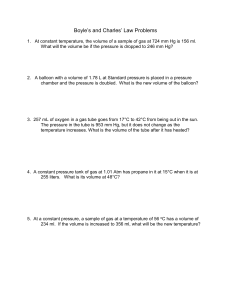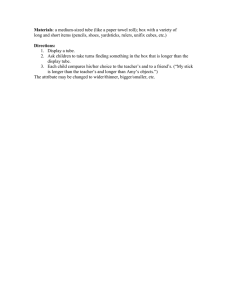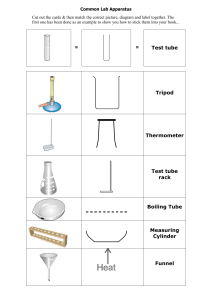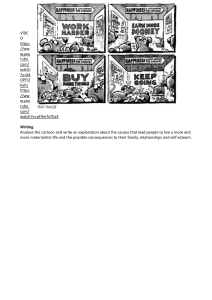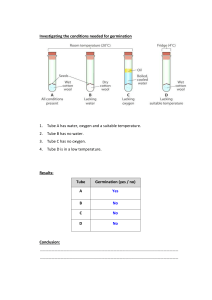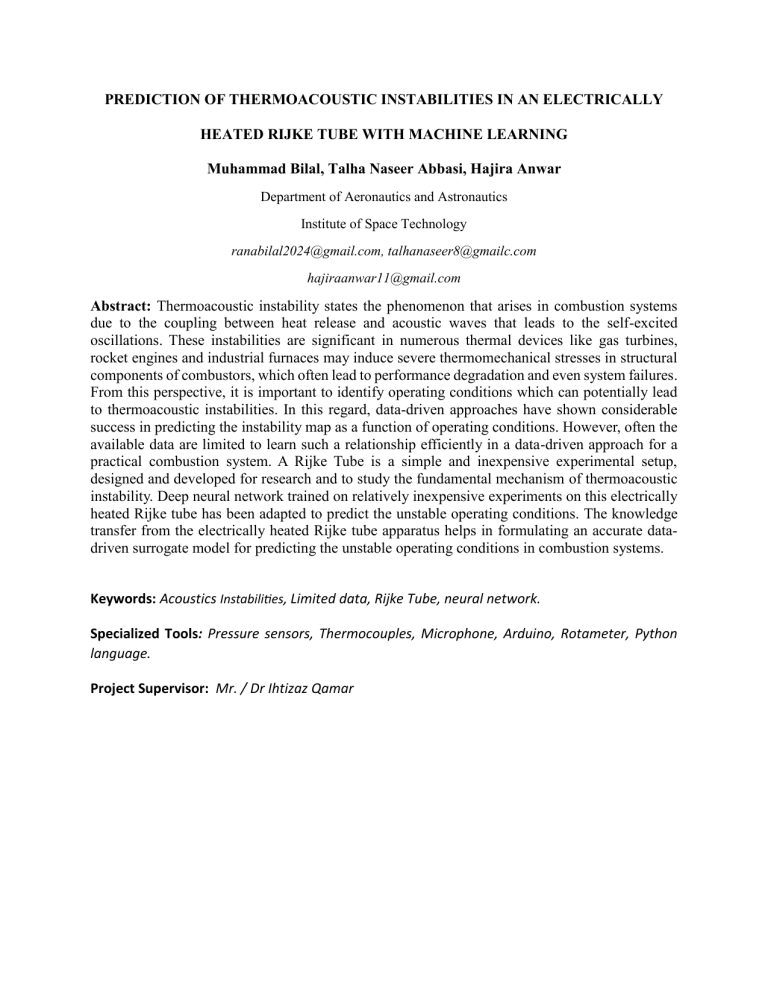
PREDICTION OF THERMOACOUSTIC INSTABILITIES IN AN ELECTRICALLY HEATED RIJKE TUBE WITH MACHINE LEARNING Muhammad Bilal, Talha Naseer Abbasi, Hajira Anwar Department of Aeronautics and Astronautics Institute of Space Technology ranabilal2024@gmail.com, talhanaseer8@gmailc.com hajiraanwar11@gmail.com Abstract: Thermoacoustic instability states the phenomenon that arises in combustion systems due to the coupling between heat release and acoustic waves that leads to the self-excited oscillations. These instabilities are significant in numerous thermal devices like gas turbines, rocket engines and industrial furnaces may induce severe thermomechanical stresses in structural components of combustors, which often lead to performance degradation and even system failures. From this perspective, it is important to identify operating conditions which can potentially lead to thermoacoustic instabilities. In this regard, data-driven approaches have shown considerable success in predicting the instability map as a function of operating conditions. However, often the available data are limited to learn such a relationship efficiently in a data-driven approach for a practical combustion system. A Rijke Tube is a simple and inexpensive experimental setup, designed and developed for research and to study the fundamental mechanism of thermoacoustic instability. Deep neural network trained on relatively inexpensive experiments on this electrically heated Rijke tube has been adapted to predict the unstable operating conditions. The knowledge transfer from the electrically heated Rijke tube apparatus helps in formulating an accurate datadriven surrogate model for predicting the unstable operating conditions in combustion systems. Keywords: Acoustics Instabilities, Limited data, Rijke Tube, neural network. Specialized Tools: Pressure sensors, Thermocouples, Microphone, Arduino, Rotameter, Python language. Project Supervisor: Mr. / Dr Ihtizaz Qamar
